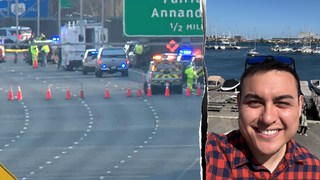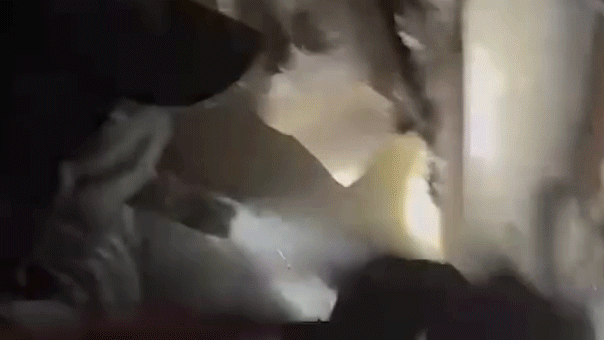Fox News Flash top headlines for June 17
Fox News Flash top headlines are here. Check out what's clicking on Foxnews.com.
An Alabama man, charged on Friday with the shooting and killing of three people, showed a prominent black eye in his mugshot after he was struck with a folding chair.
Robert Findlay Smith, age 70, was charged with capital murder for an attack that occurring during a "Boomers Potluck" at St. Stephens Episcopal Church outside Birmingham Thursday evening.
He allegedly shot two 84-year-olds and a 75-year-old before another church member in his 70s rushed the gunman and hit him with a folding chair to stop his attack.
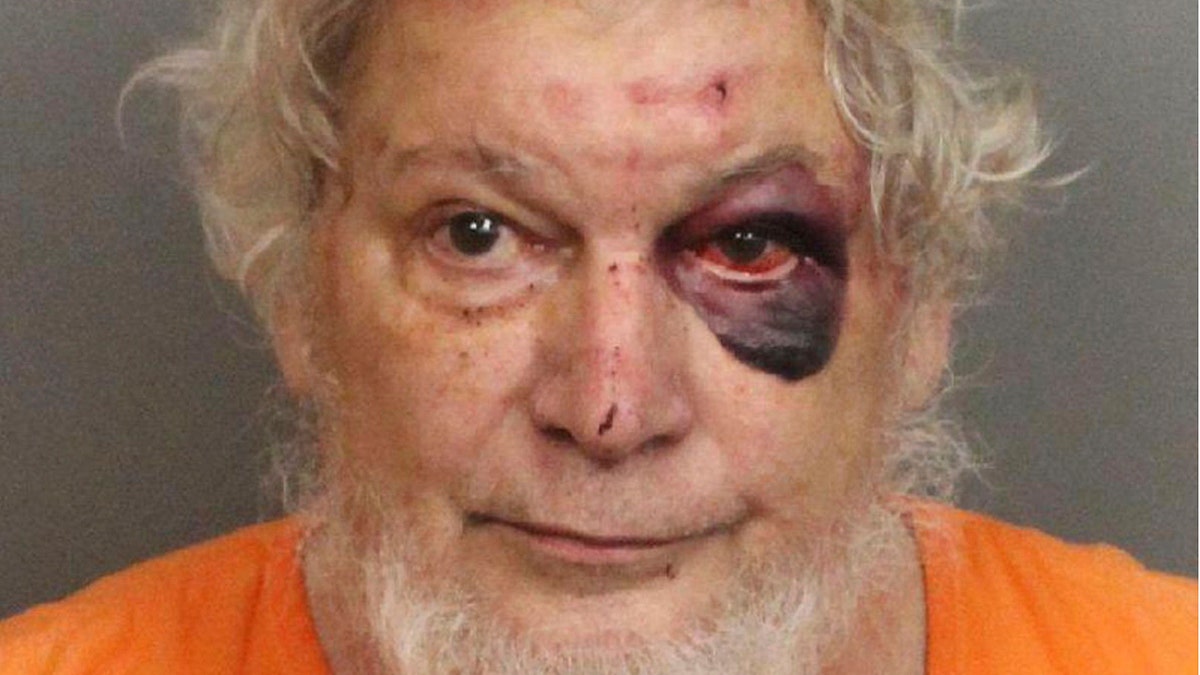
This booking photograph released by the Jefferson County Jail in Birmingham, Ala., shows Robert Findlay Smith, who was charged with capital murder on Friday, June 17, 2022, in a shooting that killed three people at an Alabama church. (Jefferson County Jail via AP)
"He hit him with a folding chair, wrestling him to the ground, took the gun from him and hit him in the head with his own gun," the church's retired pastor, Rev. Doug Carpenter, reportedly described.
The parishioner was then able to disarm Smith, leaving him largely unharmed but with a large bruise and a bloodshot eye, according to the mugshot released by the Jefferson County Jail in Birmingham.
All three victims shot during the Thursday attack have succumbed to their injuries, authorities confirmed Friday.
PHILADELPHIA FIREFIGHTER KILLED IN BUILDING COLLAPSE, 5 RESCUED: ‘SAD DAY’
It remains unclear what Smith’s motive was behind the shooting.
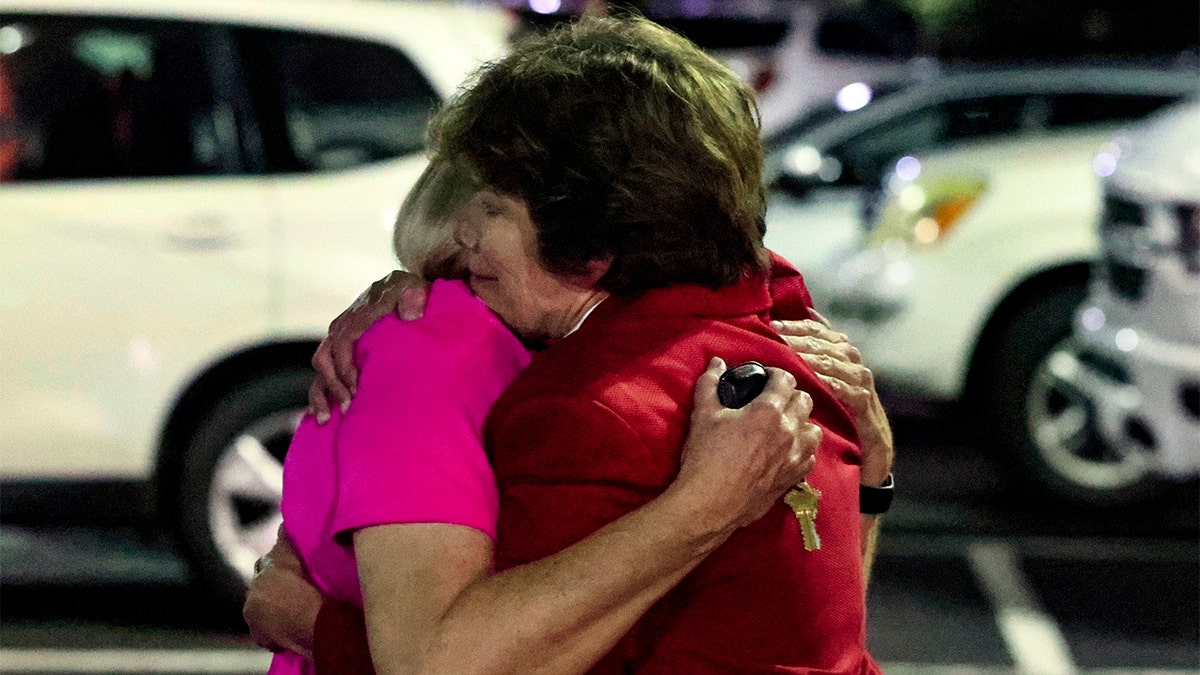
Church members console each other after a shooting at the Saint Stephen's Episcopal Church on Thursday, June 16, 2022 in Vestavia, Ala. (AP Photo/Butch Dill)
TWO LOS ANGELES-AREA POLICE OFFICERS DIE AFTER SHOOTOUT WITH SUSPECT
Carpenter reportedly said that witnesses had described how Smith, who previously attended church events intermittently, sat alone and didn't eat at the dinner.
The gunman apparently declined invitations from fellow parishioners to join them at the potluck before he opened fire.
"Why would a guy who’s been around for a while suddenly decide he would go to a supper and kill somebody?" Carpenter, who retired in 2005, questioned. "It doesn’t make sense."
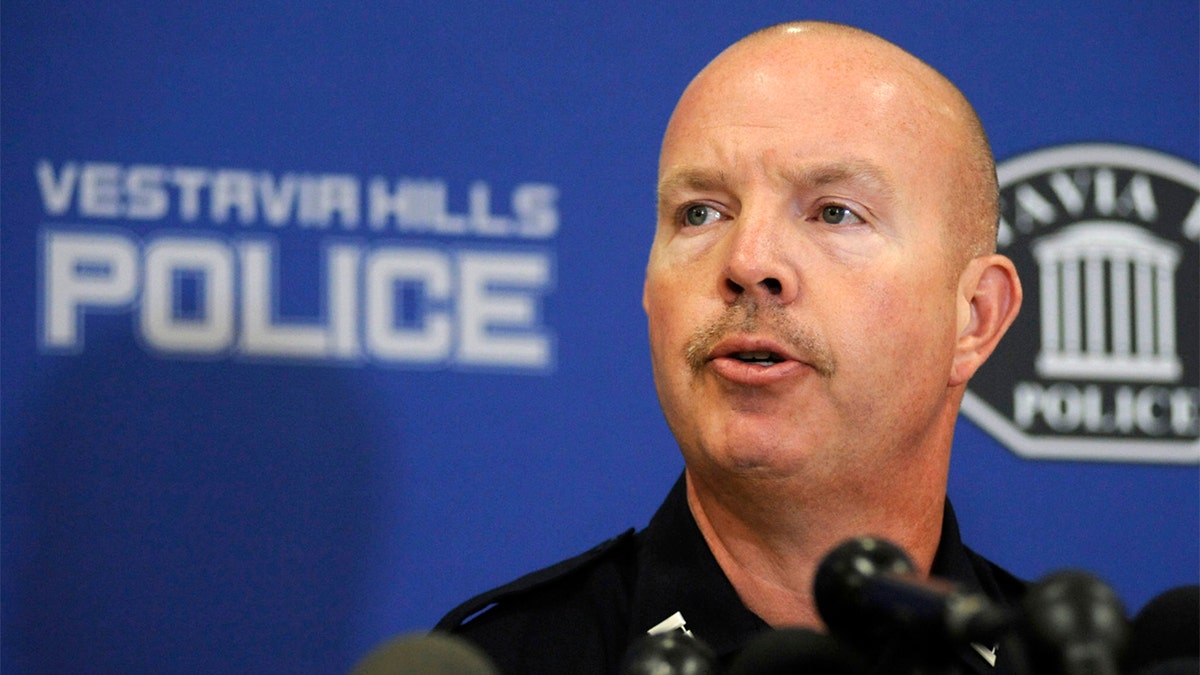
Police Capt. Shane Ware talks about a fatal shooting at a church during a news conference in Vestavia Hills, Ala., on Friday, June 17, 2022. Authorities say three people were shot to death during an evening gathering at St. Stephen's Episcopal Church when a man pulled out a handgun and began firing. (AP Photo/Jay Reeves)
CLICK HERE TO GET THE FOX NEWS APP
Parishioners held the man identified as Smith until police officers arrived at the scene.
"The person that subdued the suspect, in my opinion, was a hero," police Capt. Shane Ware said during a news conference Friday, saying that act was "extremely critical in saving lives."
The Associated Press contributed to this report.


